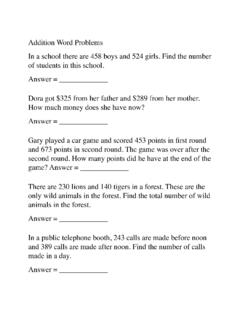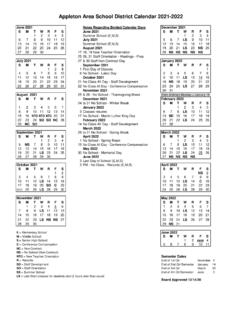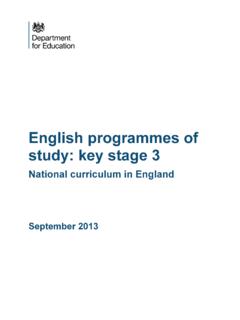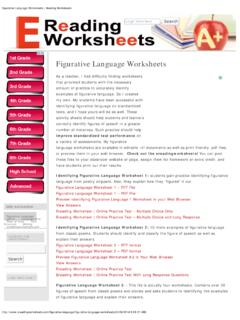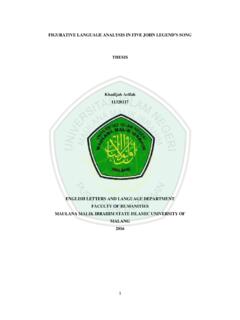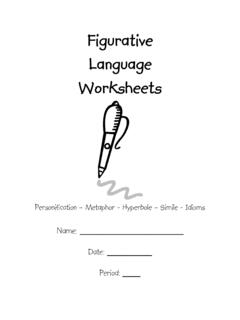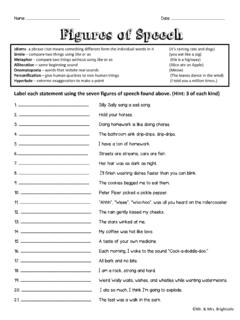Transcription of Words to Describe Mood - Montgomery County Public Schools
1 Words to Describe Mood Mood is the emotional atmosphere within the story produced by the author's use of language. Pay attention to the way the author describes the events, the setting, the way a character reacts to what is happening, and the final outcome of the conflict or resolution of the problem. Writers use imagery (sensory details) to vividly Describe the setting so that readers can picture in their minds how the setting looks, smells, and sounds. They also use figurative language (similes, metaphors, hyperbole, and personification) to help the reader understand the mood of the story. Language to Use when Discussing Mood When talking about mood, say, "The mood is " or "The (story, poem, paragraph, etc.)
2 Has a . mood." (In both examples, an adjective is used to Describe the mood.) You may also say, "The (story, poem, paragraph, etc.) has a mood of ." (In this example, you are using a noun to name the mood.). Some word forms below are adjectives. You may want to use noun form. Some are nouns. You may want to use the adjective form. Discuss with your partner how to change the form of the word. Words that express a related idea are grouped together. These Words are not identical in their meaning. Choose the one that best expresses the mood of the story you are discussing. Positive Mood Words Negative Mood Words festivity/celebration (n.) cold/uncaring (adj.) suspense/mystery (n.)
3 Optimistic/hopeful (adj.) panic/terror (n.) envy/jealousy (n.). happy/upbeat/ anxious/nervous/ (adj. confused/puzzled/. (adj.). joyful/cheerful (adj.) worried perplexed/baffled loving/warm/tender (adj.) pessimistic/hopeless (adj.) desperate/anxious (adj.). relieved/comforted/ perseverance/ depression/sadness/. (adj.) (n.). thankful determination melancholy/gloom (n.). peace/serenity (n.) urgency/necessity (n.) lonely/isolated (adj.). sentimental/nostalgic (adj.) uneasy/restless (n.) danger/threat/peril (n.). lighthearted/ somber/serious/ violent/cruel/. (adj.) (adj.) (adj.). playful gloomy brutal/ hostile harmony (n.) scary/frightening (adj.) caution/uncertainty (n.). foreboding/sinister foreboding/ominous/.)
4 Anticipation/expectation (n.). (adj.) threatening/sinister (adj.).
